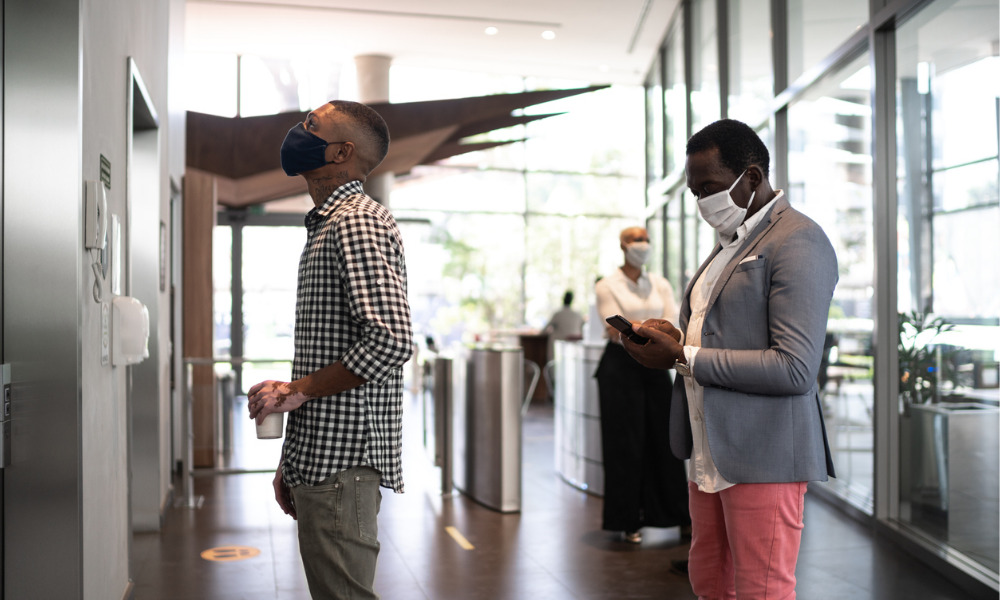
HRD speaks to The Smith Family and ANZ about the rising value of workplace giving

United by a common cause, the global pandemic has served as a reminder of the importance of community. It encouraged us to revaluate our jobs, our connections and our place in the world. But once COVID-19 is behind us, will the lessons of the last 12 months stay with us?
HRD spoke to David Sloan, national manager for corporate partnerships at The Smith Family, a not-for-profit children’s charity, about how COVID-19 has shone a spotlight on the importance of philanthropic workplaces.
“COVID certainly has identified the difference between the haves and the have nots,” he said. “The digital divide is an area that The Smith Family has been talking about for many, many years and it was never more obvious than during the home learning period which families experienced last year.
“It’s given people cause for thought to think if this is hard and difficult for me right now holding down work with a family at home, what must it be like for someone who is a single parent, is living with a disability, or who is on low or no income?”
While workplace giving schemes are not a new practice, the pandemic has made us question the role our employers are playing in the societies we live in. Research has shown the millennial workforce is the most ethically aware yet. A UK study by Global Tolerance found that of those born between 1981 and 1996, 62% want to work for a company that makes a positive impact.
Read more: Why HR should facilitate workplace giving initiatives
For millennials, who make up almost 75% of Australia’s workforce, employee value proposition is no longer just about renumeration, leave allowance and perks. More and more prospective employees are also questioning what their organisation is doing on a societal level. As well as workplace giving schemes, opportunities for volunteering are also popular. Many industry leaders like Deloitte offer staff paid days off for volunteer work throughout the year.
“As more of us become more ethically aware in society, we're often looking at a company as an ecosystem,” Sloan said. “Not just in terms of what it is they do within their day-to-day business, but how they're supporting the community at large.
“Many millennials favour employers that offer a workplace giving aspect to their programs, and it helps them attract and win top talent as well. It really enables them to join forces where you’ve got an employer, an employee, and a charity working together.”
Banking giant ANZ has been partnered with The Smith Family for 30 years and last year, they won silver in the Most Innovative Charity and Employer Partnership category at the 2020 Workplace Giving Excellence Awards.
Speaking to HRD, Kathryn van der Merwe, ANZ’s group executive of talent and culture, said workplace giving plays a key role in fostering the company’s culture.
“When I joined ANZ a few years ago, I was impressed to learn about our long history of giving something back. During World War 2 for example, our staff played an active role in providing support to people across the globe with food parcels,” she said.
“Today, workplace giving comes in many forms. Our people give some of their time, skills and resources to support the community. We have a number of programs and initiatives that facilitate this culture of giving back and it is a great reminder for us as an organisation to support those in need.”
Read more: Revealed: Australia's best workplaces to give back
A few years ago, ANZ announced it would double match employee donations made through the workplace giving scheme and through this, saw a 34% uptick in participation across their Australian workforce. The number of employees taking part in the corporate volunteering scheme also reached its peak before COVID-19 at 42%. During the pandemic, 20% of the workforce continued their volunteering through things like virtual events.
“Philanthropy initiatives demonstrate an outward focus and helps to put things into perspective,” van der Merwe said. “Over the last few years, we’ve focused our attention to things where we believe we can make a significant societal contribution. The areas of financial wellbeing, environmental sustainability and housing are big focus areas for us.”